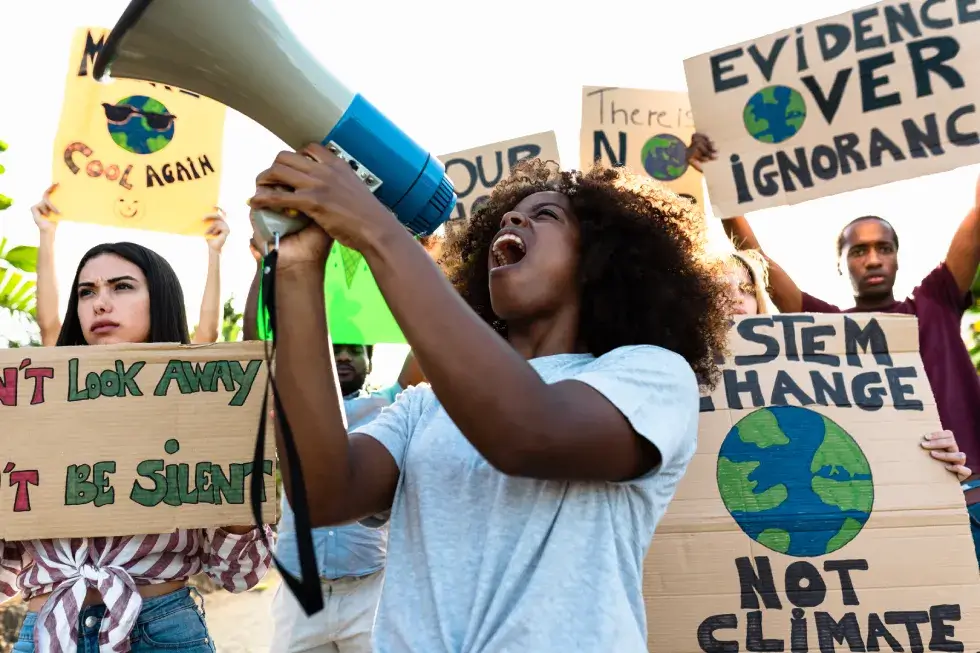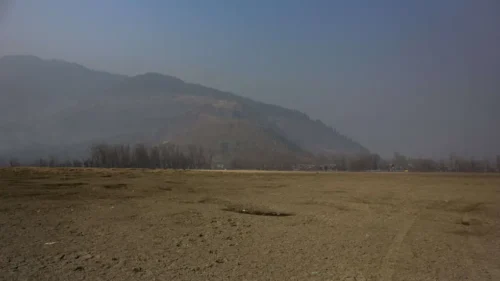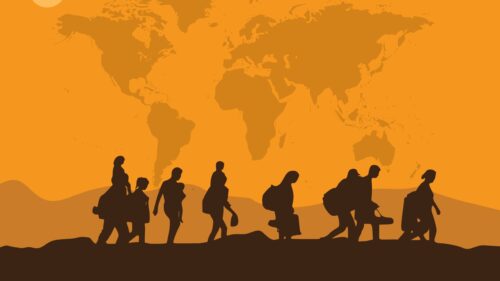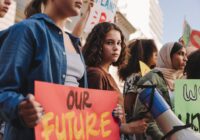The most critical problem of today is disaster-driven human displacement (DHD) caused by the climate.
Climate change catastrophically impacts every place on Earth. It exacerbates the degradation of ecosystems, natural catastrophes, harsh weather, rising sea levels, droughts, the spread of disease, land grabs, human displacement and climate conflict. These global effects jeopardize our complete enjoyment of many human rights, such as the rights to life, food, shelter, health care, safe drinking water, culture, employment and development.
We have reached a turning point in the history of DHD. Climate activists have launched several promising legal actions globally, including numerous requests for advisory opinions from international and regional courts and tribunals.
Understanding advisory opinions
The International Tribunal for the Law of the Sea (ITLOS), the Inter-American Court of Human Rights (IACtHR) and the International Court of Justice (ICJ) have all been asked for their advisory judgments about states’ obligations in light of the climate emergency.
The three mechanisms are fully operational. On May 21, 2024, ITLOS published an advisory opinion. It declared that because greenhouse gas emissions contaminate the seas, states have to take all necessary steps to avoid, reduce and limit them. In December 2023, as part of its advisory opinion process, the IACtHR held in-person public hearings and accepted hundreds of amicus papers, and final hearings took place on May 20. Finally, states and international organizations have submitted written comments to the ICJ ahead of its June 24 deadline.
These are historic initiatives. The world looks to these tribunals for direction on what states should do to address the climate disaster. Furthermore, these processes offer a critical chance to strengthen environmental defenders’ safeguards.
Climate protection activism: vital yet targeted
Climate rights activists defend our world from catastrophe in various ways. They peacefully oppose extractive industries, conventional agricultural methods, media, legislation, land management and other strategies. They help us adapt and mitigate climate change through their endeavors.
One study reveals that activists who employ multiple strategies have a higher success rate of up to 27%. Those who use only one tactic “[contribute] to halt environmentally destructive and socially conflictive projects, defending the environment and livelihoods” in 11% of climate conflicts.
Climate rights activists defend human rights in addition to the Earth. “Human rights defenders in environmental matters [strengthen] democracy, access rights and sustainable development,” acknowledged by the Escazú Agreement.
Unfortunately, this valuable service is often met with heinous opposition. These activists are the most frequently targeted climate rights defenders. They suffer many attacks, which often go unreported. These include assault, criminalization, smear campaigns, forced evictions and displacement, intimidation and judicial harassment. Opponents even employ strategic lawsuits against public participation to discourage their activism, or silence them through murder.
These threats inhibit climate rights activists from continuing their brave mission of addressing global warming. The hostile atmosphere opposes international legal norms on free speech and assembly rights. We need states to safeguard these people so they can uphold their commitments to climate change mitigation and human rights protection. Further, we need laws that require states to grant climate rights activists more protection.
To address the unique challenges experienced by climate activists who belong to marginalized groups — namely women, indigenous peoples, the African and Asian diasporas and rural agricultural communities — states should adopt an intersectional or “compartmentalized” approach to these laws. According to Michel Forst, the Special Rapporteur on Environmental Defenders of the Aarhus Convention, this entails “acknowledging that defenders are interconnected.”
Defending the defenders
Fortunately, some members of the international community are defending these activists and their civic space. Lawyers from Robert F. Kennedy Human Rights (RFKHR) group and several international organizations wrote a submission to the ICJ and an amicus brief to the with the goal of advancing the protection and analysis of climate defenders. During the IACtHR proceedings in Manaus, Sofía Jaramillo, the senior staff attorney for Civic Space, gave a presentation to emphasize the connection between environmental defenders and the states’ duties on human rights and the environment. The American legal team petitioned the IACtHR asking the Department of Justice to look into the 2023 murder of climate activist Manuel Esteban “Tortuguita” Páez Terán through legal representation.
RFKHR has co-hosted several events, including a virtual side event on the IACtHR advisory opinion procedure and a webinar on climate defenders. On May 3, World Press Freedom Day, RFKHR highlighted climate journalists’ risks on social media and specific incidents involving climate defenders on the Civic Space Case-Tracker. The tracker has brought attention to the continuous persecution of Ugandans who are participating in protests against the East African Crude Oil Pipeline (EACOP).
The ICJ and IACtHR processes are still underway. The oral hearings are scheduled for late 2024 or early 2025. After concluding its public hearings on the advisory opinion, the IACtHR is anticipated to release its conclusion next year.
Through these actions, the tribunals and courts will have an unmatched opportunity to advance their jurisprudence in this area, fortify the safeguards for climate defenders and confront the global warming emergency. These rulings will do more than just elucidate the responsibility of states concerning climate change and human rights. The precedent they set will shape public policy and climate litigation for posterity.
[Lee Thompson-Kolar edited this piece.]
The views expressed in this article are the author’s own and do not necessarily reflect Fair Observer’s editorial policy.
Support Fair Observer
We rely on your support for our independence, diversity and quality.
For more than 10 years, Fair Observer has been free, fair and independent. No billionaire owns us, no advertisers control us. We are a reader-supported nonprofit. Unlike many other publications, we keep our content free for readers regardless of where they live or whether they can afford to pay. We have no paywalls and no ads.
In the post-truth era of fake news, echo chambers and filter bubbles, we publish a plurality of perspectives from around the world. Anyone can publish with us, but everyone goes through a rigorous editorial process. So, you get fact-checked, well-reasoned content instead of noise.
We publish 2,500+ voices from 90+ countries. We also conduct education and training programs
on subjects ranging from digital media and journalism to writing and critical thinking. This
doesn’t come cheap. Servers, editors, trainers and web developers cost
money.
Please consider supporting us on a regular basis as a recurring donor or a
sustaining member.
Will you support FO’s journalism?
We rely on your support for our independence, diversity and quality.










Comment